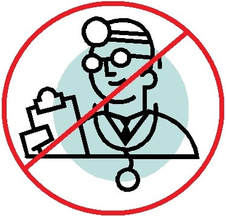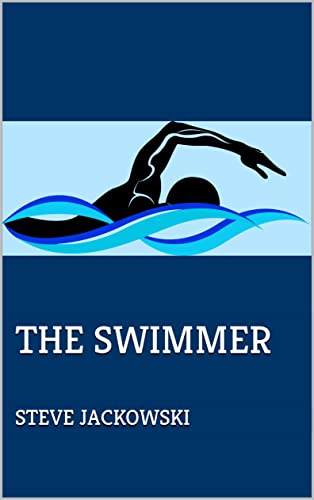
When I was growing up, becoming a doctor was the ultimate path to success, if you were good enough. Getting into medical school was challenging, surviving medical school was harder, and according to everyone I know, residency was true hell.
But if you made it through the gauntlet, you were guaranteed success in every sense of the word: financially, socially, and making the world a better place. And as I've described before, doctors constitute a significant percentage of angel investors in startups, so even after the contributions in their careers, many continue to pay back for their success.
If you ask doctors of my generation if you should go through medical school and become a physician, they'll give you a resounding yes. They'll promise that all of the upfront challenges will be more than worth it. And, they'll point to their own success.
Unfortunately, things have changed.
I've added this blog post to my Startups category because I wanted to look at the new challenges of becoming a 'successful' doctor from a business perspective. Many people entering medicine do so not just as a way to achieve financial independence, but often also from an altruistic desire to help others. In my mind, you really are a success if you can do both.
So what's different now?
Well, you still have to get into medical school - no small feat. You still have to survive it - I don't think that's changed much either. And, you still have to make it through residency, working ridiculous hours on very little sleep and endure what seems to be hazing by older residents and attending physicians who propagate the torture because if they suffered, you should too.
So, again, what's different?
Let's look at how a new physician starts a career. In general, there are two choices: 1) go to work for a medical group or hospital, or 2) open your own practice.
In the 'old' days, these were two viable choices. But no more. In my surveys, the average new physician starts her/his career with at least $250,000 in student loan debt and it can be much more than that if they go into a specialty that requires more education and longer residencies. Several years ago, Ben Bernanke (former Fed chair) remarked in an interview about student loan debt that his son would exit medical school with over $400,000 in debt. That was several years ago. Medical school costs have skyrocketed since.
Most of these new physicians are in their 30s, sometimes in their late 30s (again if they sought a specialty). If they married before or during medical school and residency, there's a good chance they divorced. Medical school and residency are hard on relationships. Because of this, many physicians wait to marry and they often marry other physicians. I know several couples who finished their residencies in their mid to late 30s and are now saddled with over $500,000 in combined debt.
But that's okay, right? They're going to make a fortune. Well, not so much.
Starting a practice right out of residency while carrying and trying to service medical school debt has become much more difficult than it used to be. Sources of financing for these startups are generally unavailable. And with the debt load, it's virtually impossible for new physicians to come up with startup funds and then generate enough cash flow to live on while they try to bootstrap a practice. So for the vast majority, this idea of starting your own practice fresh out of residency is no longer a viable choice. That means you need to get started in with a medical group or hospital. Not a bad choice, right? You'll gain experience. You'll make a good salary. And many of these groups will help pay for your student loans.
Sounds like a great place for a career or perhaps it could be a jumping off point for starting your own practice.
The reality is a bit different. I'll just hit on a few points. Larger medical organizations are businesses. Years ago, most businesses provided a second home for their employees. You could start a career and work towards retirement with health insurance, vacation, and other benefits guaranteed. If you worked hard, you'd be promoted, you'd earn a good living, and your job would be secure. That's changed in virtually all of our industries, and the medical industry is no different.
In many ways, the medical industry is worse. If you've followed the posts in my Startups category, you know that I have very strong feelings about business models that motivate and reward employees. If you look around, you'll see that just as mergers and acquisitions have created huge corporations in most industries, there are now fewer and fewer medical/hospital groups as they too become giant enterprises. In tech, some companies have worked to leverage their size to ensure the best environments for their expensive talent. They provide flexibility to ensure creativity. Not so with the medical industry. Arguably, the talent there (physicians) is even more valuable and more expensive than what we see in tech. So what does employment look like?
I was shocked to discover that in spite of what appear to be contractual promises to the contrary, most of these groups have moved to a model where a physician's pay is 100% incentive based. It didn't start out that way. Medical groups wanted to provide incentives for physicians to spend their time on procedures that produced the most revenue, so they took a portion of the physician's pay and designated it as incentive-based based on Relative Value Units (RVUs).
RVUs were originally developed as a mechanism to determine the relative value of medical procedures against each other. This enabled insurance companies, and in particular, Medicare to standardize the definitions of the procedures themselves. It made sense. It even made some sense to provide incentives to physicians. But now, it's gone too far.
Physicians are often now paid based on the number of RVUs they log. If they go beyond what is expected, they get a bonus. If they fall below, their compensation is reduced.
One problem with this approach is that the physician has very little control over which patients are seen or what procedures need to be performed. Scheduling is out of their hands as is the amount of time they are permitted to spend with a patient. Add in the disincentive to spend time with a patient that needs more help but whose visit will generate fewer RVUs, and you get a physician who becomes frustrated that s/he can't deliver the necessary care, and patients who don't get the best care possible.
Worse, the number of 'expected' RVUs changes every year. If the group of physicians does well with their RVUs, the expectation is raised. After a few years, as the required RVUs climb, physicians are doomed to miss the targets. This model guarantees failure. And that's not just from a financial point of view, it's also a question of the quality of patient care, and of the physician's motivation.
But it's even worse. If a physician takes vacation, s/he is not accumulating RVUs and those 'lost' RVUs are impossible to make up. So, physicians avoid vacations.
And what about the new reporting requirements - physicians are required to fill out Electronic Medical Records (EMRs) documenting each visit, procedure, etc. Do you think they get paid for that? Not a chance. Since they're only paid for RVUs, that work is done on their own time.
All of the young physicians I know who are working for medical groups are stressed to the extreme. Those that are making their quotas in RVUs know that it's just a matter of time before they can't do it anymore. But they're making the big bucks, right? Well, in the words of an urgent care physician I interviewed, "With the student loans and the current compensation structure, doctors are now blue collar workers."
And you know, there's no way out. They can't just quit. The student loan debt hangs over their heads. Loan forgiveness in bankruptcy isn't generally granted to someone who could earn six figures. Unfortunately, the only way they can earn it is to work as a physician. There's no way out.
If you really don't think it's that bad, take a look at suicide statistics for physicians. They're more than double those of the general population. Between the stress caused by lack of control of their work, the stress of trying to repay medical school debts, and the stress of knowing they can't quit, and the lack of vacation time, it's not like it was for the physicians that came before them.
Sure. Some make it. Some do manage to get their own practices started. But unfortunately, it's not as easy as it was years ago. Physicians get no training in how to start a practice. And with the new reporting requirements, complex coding for insurance, and dealing with insurance companies who deny first, starting a new practice is a herculean task, worse for a new physician.
If you're thinking of embarking on a career as a physician, think twice. Don't just listen to the physicians of your parents' generation. Make sure you talk to younger residents and attending physicians. Then, at least your expectations will be properly set.



 RSS Feed
RSS Feed